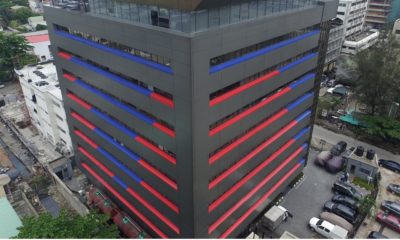- Nigeria, Other African Countries Generate $66.7b Premium
Nigeria, South Africa, Morocco and other African countries generated $67.7 billion (aboutN24.372 trillion) insurance premium income in 2017, the African Insurance Organisation (AIO) said on Monday.
According to the fourth Africa Insurance Barometer report of AIO unveiled at the opening ceremony of its 46th conference, the continent’s insurance markets have returned to a more stable environment following the economic downturn of 2015 and 2016.
The conference which has 60 countries in attendance is ongoing in Johannesburg, South Africa.
The report stated that due to positive exchange rate developments, in particular, the strengthening of the South African rand against the US dollar, premiums grew by 12 per cent in US-dollar terms from $59.4 billion in 2016, reversing the trend of previous years when growth rates were negative due to depreciation of African currencies.
It further showed that on an inflation adjusted-basis, overall insurance premiums increased by just 0.5 per cent in 2017. This is ahead of the growth in advanced markets which is -0.6 per cent, but below the 10.3 per cent volume growth for the world’s emerging markets.
“In Africa’s largest insurance markets, total real premium growth was positive in Egypt at +9.8 per cent, Namibia at +7.8 per cent and Morocco at +3.0 per cent, stagnant in South Africa at +0.1 per cent and negative in Nigeria at -10.5 per cent, Algeria at -2.8 per cent and Kenya at -2.0 per cent.
“The annual survey conducted among the CEOs of Africa’s primary insurers, the industry continues to benefit from its underlying growth story, the resilience that it demonstrated during the downturn and a strengthening regulatory framework,” the report read.
AIO Secretary General, Prisca Soares said the mood among Africa’s insurance executives polled for this year’s conference is slightly more cautious than last year’s.
“Following the deep recession of 2015 and 2016, insurers are less bullish. The crisis exposed Africa’s continued vulnerability to external shocks. In addition, the prospects for the global economy and for global trade have reduced for the near-term future.
“However, with the availability of technology and an expanding middle class, awareness and the understanding for the benefits of insurance are improving among policymakers, regulators and consumers. This will generate additional impulses for the industry,” she said.
The outgoing president, AIO, Mrs. Aretha Duku-Gia said low insurance penetration in Africa still presents an opportunity for growth, urging insurance operators to use the huge population of the continent to advantage.
She listed micro economic, cultural and religious sentiments as well as low education as challenges that must be addressed for African insurance industry to compete favourably in the international market.
While calling for insurance to be introduced in secondary schools across Africa for increased insurance education, she urged companies to adopt multi-channels to sell insurance products and services.
“We must do all we can, to make insurance accesssible to all, especially, those in the informal sector,” she added.


 Billionaire Watch3 weeks ago
Billionaire Watch3 weeks ago
 Startups4 weeks ago
Startups4 weeks ago
 News4 weeks ago
News4 weeks ago
 News4 weeks ago
News4 weeks ago
 Bitcoin4 weeks ago
Bitcoin4 weeks ago
 Naira4 weeks ago
Naira4 weeks ago
 Forex3 weeks ago
Forex3 weeks ago
 Treasury Bills4 weeks ago
Treasury Bills4 weeks ago






















